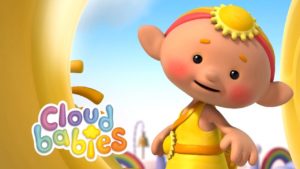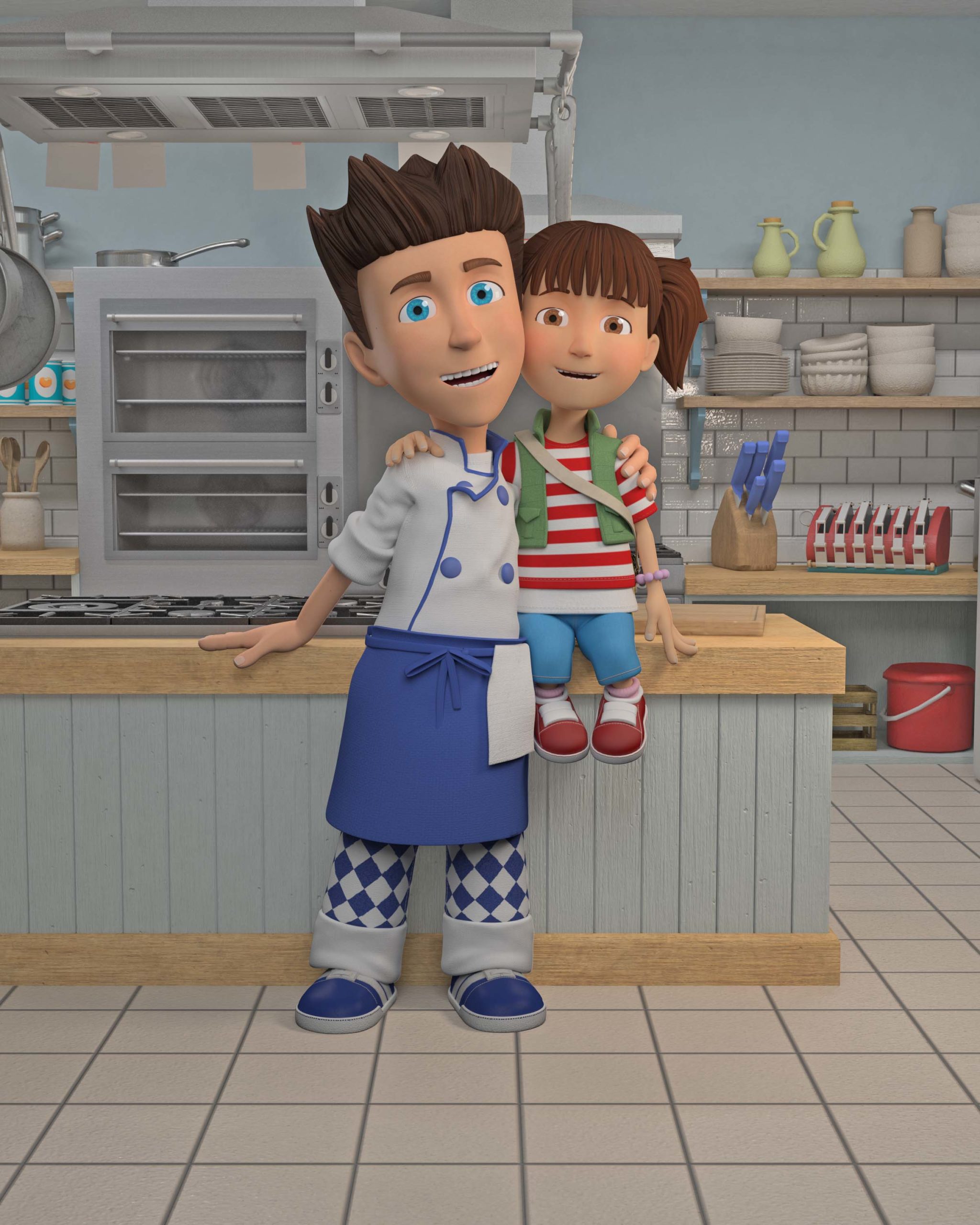When it comes to community-centric massively multiplayer online role-playing games, you may immediately leap to the likes of Fortnite and Overwatch, which is just so very… millennial of you. Because what you’ve done there, is you’ve overlooked one of the genre’s founding titles; one that boasts more than 280 million players around the world, and one that now, in its 20th year of operation, is a franchise totalling $1bn in value.
That’s right – it’s RuneScape, one of the most popular and commercially successful MMO (massively multiplayer online role playing games) that for some reason or another, you’ve most likely never heard of. Until now. And that’s because Jagex – the developer and publisher, and owner of RuneScape and Old School RuneScape – is now in the process of developing new projects and partnerships aimed at expanding the franchise’s global footprint to reach new audiences today.
It’s only recently that The Guinness World Book of Records recognised RuneScape as the Most Prolifically Updated MMORPG video game of all time, paying tribute to the matter that not only is RuneScape one of the most engaged with video game titles among audiences who caught the wave two decades ago, but that since then, the game itself has evolved, grown, and expanded, been refined and improved upon all in line with its audience base over that time, too.
RuneScape today certainly won’t be the same RuneScape you or the 280 million other players first picked up 20 years ago, but it is exactly that – the matter it has thousands of years of in-game lore and engaging narratives within its franchise – that helps it, as a commerical IP, go from strength to strength with each passing year.
To find out more about RuneScape, Old School RuneScape and the licensing activity that Jagex is now starting to build out around it, Licensing.biz caught up with Stewart Stanbury, director of business development at the video game specialist.
Can you tell us about Jagex and RuneScape – what is the story of the franchise, and what is the strength of the IP like today?
Jagex is a leading British video game developer and publisher best known for RuneScape and Old School RuneScape, two of the world’s most community-centric and successful massively multiplayer online role-playing games. We create ‘living games’ – deep, meaningful and ever-evolving immersive experiences that provide long-term engagement – and we inherently understand how to connect, engage and excite people through play.
Jagex, headquartered in Cambridge, has enjoyed five years of successive growth, almost doubling its staff in the last two years and generating revenues of around £100million a year. RuneScape, now in its 20th year of operation, is a $1billion franchise, reached its record membership number in the last year, and has reached more than 280 million players around the world. With thousands of years of in-game lore, engaging narratives and a huge, global player base that continues to play year after year, the company’s IP continues to grow from strength to strength.
Jagex is also working on some exciting projects and partnerships that we will be announcing in the coming months, aimed at expanding its global footprint and reaching new audiences.
What has Jagex and RuneScape brought to the video gaming space over the years?
To keep a dedicated game going for almost 20 years is no small achievement. RuneScape grows and expands with its community and is constantly refined and improved by a dedicated team of creators, developers, and writers. RuneScape has set the global benchmark for what living game should be, and Guinness World Records agrees, having officially recognised the game as the Most Prolifically Updated MMORPG Video game.
A core pillar of this is the community polling we have put in place for Old School RuneScape. The games development, narrative and updates are all decided by our community; all changes are voted for, and with more than 11 million votes to date, it’s our community that has made it the game it is today.
RuneScape has also seen great success in the streaming and eSports arenas. Consistently in the Top 10 streamed games, RuneScape has generated more than 1 billion minutes of watch-time. Our quarterly Deadman Finals in 2018 hit number one on the Twitch charts.
RuneScape was also the first major Western MMORPG on mobile platforms. Thanks to strong partnerships with Apple and Google, Old School RuneScape has gone on to achieve number one across all apps in eight countries and featured in the top 10 across 16 more. RuneScape has also demonstrated the importance of having various entry points into the franchise via PC and mobile for both RuneScape and Old School, using the ability to put down and pick up on a different device seamlessly to engage players for longer and on the go. The game itself works on most mainstream computers and laptops, and across most mainstream operating systems, from Linux to Windows and Mac.
What is it about RuneScape that gives it such a strong appeal among a largely ‘underground’ audience? Why and how has it maintained this ‘underground’ recognition for so long?
The secret lies in our updates. We are constantly developing our game design with a large, dedicated team of developers, designers and artists who know how to create evergreen content. We use an ongoing interplay of analytics, data science and player feedback to determine the best possible content for the community to maximise enjoyment and engagement. Our agile infrastructure allows Jagex to act on this insight. Designing, iterating and executing efficiently and effectively to the changing needs of our community. Where other games chase trends or build obsolescence into their business plans, Jagex keeps its focus tightly on its audience.
This goes for things like setting new industry standards for player inclusion, community management and transparency. Jagex has more than 150 staff dedicated to engaging with our players across community platforms globally as well as 24-hour account, tech and payment support with an 87 per cent customer satisfaction rating. As a result, our average player spends six years and upwards playing RuneScape, accounting for more than 500billion minutes of accumulated playtime in total across the franchise.
What has the licensing programme for RuneScape looked like to date? What collaborations or partnerships have you launched so far?
Jagex had an early merchandise programme which ran from 2007 to 2010 with a focus on publishing novels with Titan Books, and what has become an iconic game guide from Scholastic – both of which remain popular with the RuneScape community. It has also worked with Back Street International (BSI) since 2015 for our official RuneScape merchandise store and has collaborated with creative members of the RuneScape community to add their designs and products.
2018 saw the commercial release of RuneScape’s award-winning soundtrack for the first time, with two vinyl releases from specialty gaming label Laced Records – including an orchestral album from composer James Hannigan with music recorded at Abbey Road Studios. On release, this soundtrack actually charted in the Top 10 on the US Classical Billboard Chart. Eight albums of RuneScape’s music are now also available digitally on leading streaming services. With a Guinness World Record for the most original music in a video game we have a lot more music still to release, with additional vinyl and digital releases planned.
More recently Jagex signed a license agreement with Pyramid Posters for posters and gifting solutions for our North American audience and will be announcing more details of a publishing partnership with Dark Horse Comics in the very near future.
Why is now the right time to be looking to build that licensing programme outwards and growing mainstream awareness of RuneScape?
With Old School RuneScape’s huge success following its expansion to mobile, and with RuneScape currently in mobile beta for both Android and iOS, we are reaching more players than ever before. No mean feat for a 19-year-old game. Our most recent launch of the Archaeology update for RuneScape has seen significant player growth and we are continuing to expand our games in new and interesting ways with an enviable roadmap for 2020 and beyond.
2021 will mark the 20th anniversary for the franchise, and we see this as a significant opportunity to develop commemorative merchandise and new product launches for our growing player base. We will also have some new and exciting projects to announce through 2021 which will have their own unique licensing opportunities and are actively seeking the right partners to work with us on these.
What does and what can RuneScape bring to the video game licensing/pop culture licensing space today?
RuneScape is not just a game, but a lifestyle for millions of players. Our data and insight show a strong desire from our players for more RuneScape outside of the core games themselves, but we recognise the desire for quality products that our community see as adding value to their experience.
Jagex is founded on principles of humour, fun, wit and creativity. RuneScape is a rich, fantasy world with unique and iconic characters, weapons and a long-term narrative and story roadmap that spans far into the future. At Jagex, we are identifying the ways in which we can bring our stories to life and enrich relationships with our players, not at the expense of them.
What sort of licensing partnerships are you looking to establish for the IP? And why would it lend itself so well to these categories?
Having a diverse player base, the IP is well positioned to appeal to opportunities spanning from in-game moments and stories with pin badges and apparel, to board games and unique, premium collectable items that mirror the most desirable in-game items and character creations.
Additionally, Jagex is engaging with OEMs, hardware/peripheral manufacturers, software developers, and one-of-a-kind unique creation studios to bring a range of new opportunities, accessories and collectibles to our players.
How do you foresee the growth of the licensing programme shaping a new audience for the game? In turn, how will this shape the future of the RuneScape IP?
Popular culture has embraced fantasy as a cornerstone of modern entertainment in a way that would have been hard to predict even ten years ago. Across film, TV series and video games, new audiences are looking to discover IP that has not only proven popular, but which is also widely available through new devices, mediums and products. As Jagex continues to grow RuneScape to new platforms, new titles and new license opportunities, we are in a great position to reach not only our dedicated players and collectors but also returning players and new audiences across the industry.
Following this period of lockdown – what do you think the future holds for video game licensing? Why is it important to be a part of that scene now?
The WHO has encouraged gaming as a way for people to continue to engage with friends and family during this challenging time, an encouraging sign of changing opinions about the utility of video games in bringing people together. The RuneScape community has never been more welcoming to new players, or stronger than it is now, with our player base growing daily and providing a space for people to explore, meet friends and build enduring relationships.
People will, as they always have, invest their time and money in the things that bring them closer to their friends and their passions. If RuneScape is fortunate enough to have been part of their journey through this time and brought them the camaraderie, community and lifestyle, we would love to be able to find ways to enrich that ongoing relationship.
Licensing will play an important role in bringing this together in a considered, respectful and authentic way.
For more information about Jagex licensing opportunities, contact melisa.bunce@jagex.com














